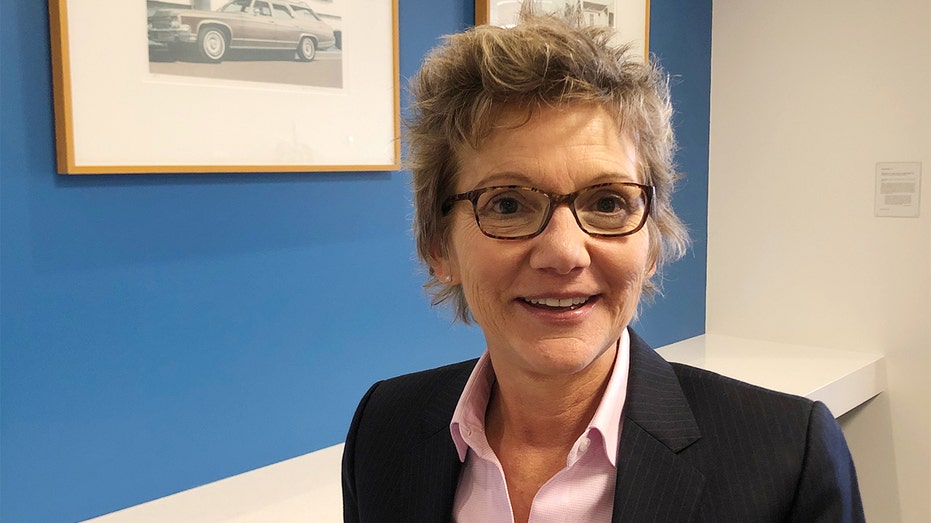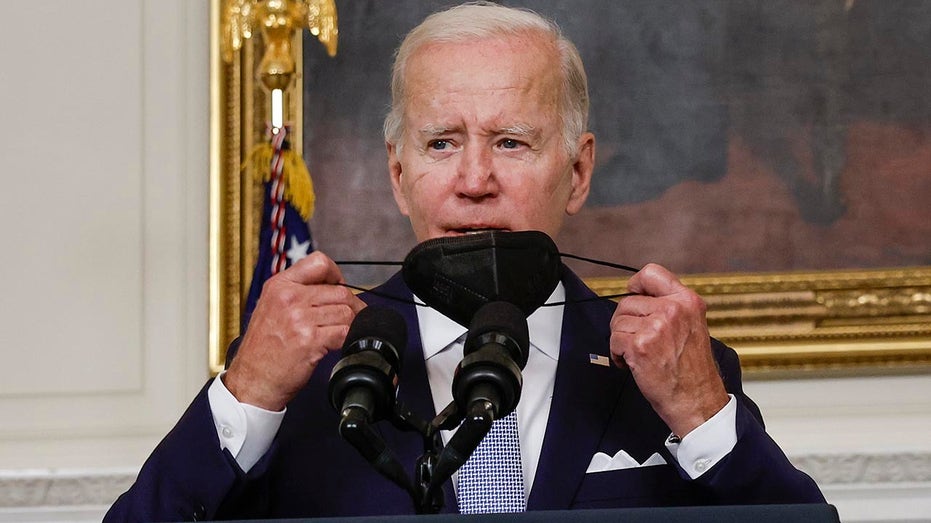Fed's Mary Daly says she doesn't feel inflation because 'I have enough,' adds 'that's not the case' for others
Daly insisted 'many, many Americans have enough' money to be unaffected by steep inflation, adding that others do not
The president of the San Francisco Federal Reserve Bank is doing fine amid a period of high inflation, but she acknowledged that others are not so fortunate.
President Mary Daly gave an interview to Reuters on Wednesday exploring the ongoing inflation spike and its effect on low-income households.
Interviewer Lindsay Dunsmuir asked Daly whether she was personally experiencing the negative effects of inflation in the U.S. economy. Daly responded that she, in fact, does not "feel the pain of inflation anymore."
"I don't feel the pain of inflation anymore," Daly said in the interview streamed on Twitter. "I see prices rising, but I have enough that I can make substitutions."
AVERAGE AMERICAN WORKER HAS LOST $3,400 IN ANNUAL WAGES UNDER BIDEN THANKS TO INFLATION

San Francisco Federal Reserve Bank President Mary Daly poses at the bank’s headquarters in San Francisco. (REUTERS/Ann Saphir / Reuters Photos)
Daly continued, "I'm not immune to gas prices rising, food prices rising; I sometimes balk at the price of things, but I don’t find myself in a space where I have to make trade-offs, because I have enough."
"Many, many Americans have enough," she added.

Mary Daly, president of the Federal Reserve Bank of San Francisco, stands for a photograph following a Bloomberg Television interview in San Francisco, California, U.S., on Wednesday, Nov. 13, 2019. Daly said that monetary is in a good place given he
"But I see regularly — and I recognize what it feels like — when you don't have that situation. When you live so close to the edge of your income that raising prices actually force real trade-offs," she continued.
Daly went on to give an example of the people she believes are being affected by inflation — specifically, families who must downsize their vacations.
"You may not be able to go to the vacation you want. You may end up instead camping or doing a stay-cation," Daly said. "Or what you used to eat out to do, you eat in your hotel because you can't really afford getting there and then going out to dinner once you're at the hotel. And I see all of that."
FED OFFICIALS SIGNAL MORE INTEREST RATE HIKES TO COME, DESPITE GROWING RECESSION RISKS
President Biden has reiterated that tackling surging inflation is his top priority.
Biden has claimed he does not think the U.S. would be entering a recession in the near future, and his administration — including White House press secretary Karine Jean-Pierre and economic advisor Brian Deese — is now denying that the U.S. is in a recession, despite sharp inflation.
GET FOX BUSINESS ON THE GO BY CLICKING HERE
Biden declared his administration's top priority was "getting price increases under control" earlier this month after the Department of Labor reported that inflation soared 9.1% over the last 12 months.

U.S. President Joe Biden removes his mask as he delivers remarks on the Inflation Reduction Act of 2022 in the State Dining Room of the White House on July 28, 2022 in Washington, DC. (Photo by Anna Moneymaker/Getty Images) (Getty Images / Getty Images)
CLICK HERE TO READ MORE ON FOX BUSINESS
The president also endorsed the Inflation Reduction Act, a bill that would increase tax revenue by $739 billion while attempting to lower pharmaceutical prices and investing in a wide swath of clean energy programs.
"This is the action the American people have been waiting for," Biden said after the bill was announced by Sen. Joe Manchin, D-W.Va., Wednesday. "This addresses the problems of today – high health care costs and overall inflation – as well as investments in our energy security for the future."




















